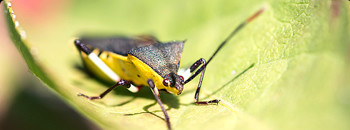The May 29 To the Point program on KCRW 89.9 with guest host Barbara Bogaev focused on the decline of honeybee populations across the United States. RISE president Aaron Hobbs was invited as a panelist on the program, “The Mysteriously Disappearing Honeybees,” where he discussed the complexity of pollinator health alongside other panel members:
- Bryan Walsh, foreign editor and former environmental reporter for TIME
- Lori Ann Burd, environmental health program director for the Center for Biological Diversity
- Claire Kremen, professor at the University of California, Berkeley
- Michele Colopy, program director for the Pollinator Stewardship Council
Bogaev called on Walsh to open the show. He shed light on the problem of honey bee die off and pointed to multiple theories as to why populations are declining. These included:
- The impact of Varroa mites
- Loss of habitat due to monoculture crop planting
- Pesticide use
- Transportation – particularly in the case of commercial honey bees.
Bogaev narrowed in on the use of pesticides, particularly neonicotinoids, and called on other panelists to weigh in on their use and impact on pollinator populations.
Burd expressed discontent with the use of these pesticides, to which Hobbs quickly reiterated that no one speculated cause of pollinator decline can be solely blamed for the complex issue.
This theme carried throughout his contributions to the program as Hobbs honed in on the need to acknowledge the complicatedness of pollinator health, discrediting those who point at just one concern as the sole cause of declining bee populations.
“The issue with pollinators is very complex. It’s unfortunate that this very important discussion and complex topic has been distracted by a focus on just one aspect of pollinator health,” Hobbs said.
Burd referenced European pesticide bans as an example of proactive addressing of the pollinator problem, but Hobbs quickly noted that there is no confirmation that this approach has made a difference.
“The science is still out,” Hobbs said. “France banned the use of neonicotinoid products in 1999 and there has been no statistical improvement in honey bee populations in that time.”
Regardless of the differing viewpoints among panelists, Hobbs indicated that a collective effort must be made to successfully address the problem of pollinator decline.
“We’re all going to have to work together to find solutions,” he said.

